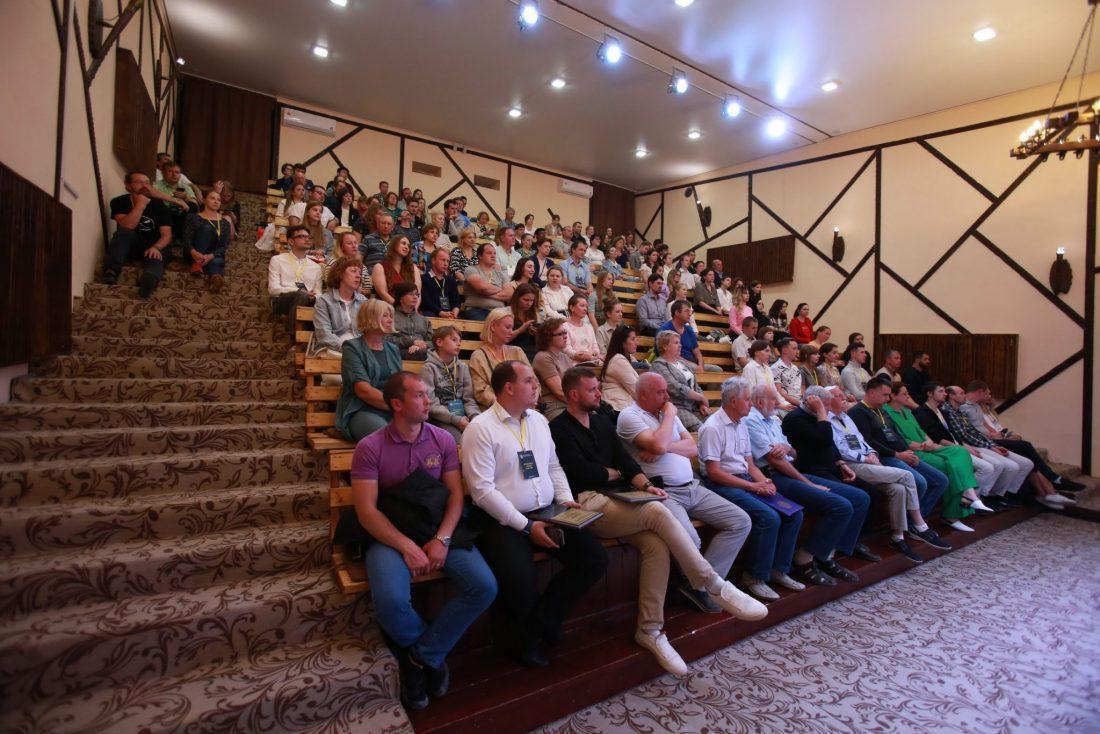Domestic developments based on polymers were presented in the North Caucasus Federal District

The relevance of the polymer, which can easily replace the most durable metal, is growing every year. Membrane module for water purification, withstanding heavy loads, plastic in the aircraft industry and space. But is everything so simple? One of the negative factors hindering the growth of consumption of composites is import dependence. At the Elbrus educational and scientific complex of the Kabardino-Balkarian State University named after H.M. Berbekov of the XVIII International Scientific and Practical Conference “Mikitaev Readings”, which for the first time brought together over 800 participants, scientists discussed the possibilities of establishing domestic production of complex polymers. According to Svetlana Khashirova, Acting Vice-Rector for Research at KBSU, the introduction of new materials in various industries should be carried out in cooperation between fundamental applied science and consumer enterprises. And since the wide possibilities of using polymer composite materials are still far from being studied and comprehended, their production can become an independent area of production.
“Unfortunately, per capita consumption of polymeric materials in Russia, according to various sources, does not yet exceed half a kilogram, while in the West this figure varies on average from four to ten kilograms. Against the background of our dependence on multifunctional imported raw materials, this, of course, is a problem that needs to be solved, — says Svetlana Khashirova. — Domestic manufacturers have already established the production of carbon and glass fibers and other fillers, the situation with binders, especially high-temperature-resistant thermoplastics, is much more complicated. It is necessary to develop full cycle projects: synthesis of monomers — synthesis of polymers — obtaining a composite material. It is clear that the solution of such a problem requires the combined efforts of various scientific teams. And our conference traditionally helps to form new consortia between universities, academic institutions in the field of polymer composite materials».
So, KBSU has been cooperating with St. Petersburg Polytechnic University for a long time. Specialists have jointly developed in the laboratory superstructural polymers and composites that are promising for the manufacture of medical implants. Such devices are twice as light as titanium (this metal is now the basis for products of this kind), do not conduct heat and do not change temperature under the influence of sunlight or frost.
“Besides, they are radiolucent – a patient with a non-metallic implant can undergo computed tomography and magnetic resonance imaging,” — adds Svetlana Khashirova. — Abroad, such materials have been used for a long time. In our country, there are no domestic implants based on superconstruction polymers, and imported ones are so expensive that a triple amount of medical insurance is needed to cover the cost of these products per person. But again, the insufficiently developed regulatory framework for certification of such materials in Russia hinders the introduction of domestic developments».
Most recently, scientists received a grant from the Russian Science Foundation to create a fundamentally new polymer as the basis for highly permeable membranes capable of filtering water and removing bacteria and viruses from it. They will work on the project for the next three years together with the staff of the Institute of Petrochemical Synthesis. Seven million rubles were allocated for testing. Membrane filtration is now becoming one of the most popular water purification technologies. According to experts, the world market for membranes is five to six billion dollars a year, and the vast majority of them are polymeric. A group of scientists from Kabardino-Balkaria is working with modified polyphenylene sulfone (PPSF), which is little studied in Russia. At the output, it must not only meet all the requirements that apply to membrane polymers, but also surpass existing samples. But again, its production is not represented anywhere, and production is currently mastered only at a small innovative enterprise at the university. Thus, Kabardino-Balkarian products will become not just import-substituting, but exclusive. Within the framework of the conference “New Polymer Composite Materials”, a researcher at the NTI Center of St. Petersburg Polytechnic University, Ilya Kobykhno, presented a paper on the use of protective materials in space. We are talking about flexible solar cells that power spacecraft. The composites included in their structure, such as polydimethylsiloxane or transparent polyimides with various types of fillers, will help ensure their stable operation and protect them from all types of impacts, from sandstorms to collisions with space debris.
Source: Rossiyskaya Gazeta (rg.ru).
North Caucasus Federal District
Date: 07/26/2022
Author: Anna Yurkova (Kabardino-Balkaria)

